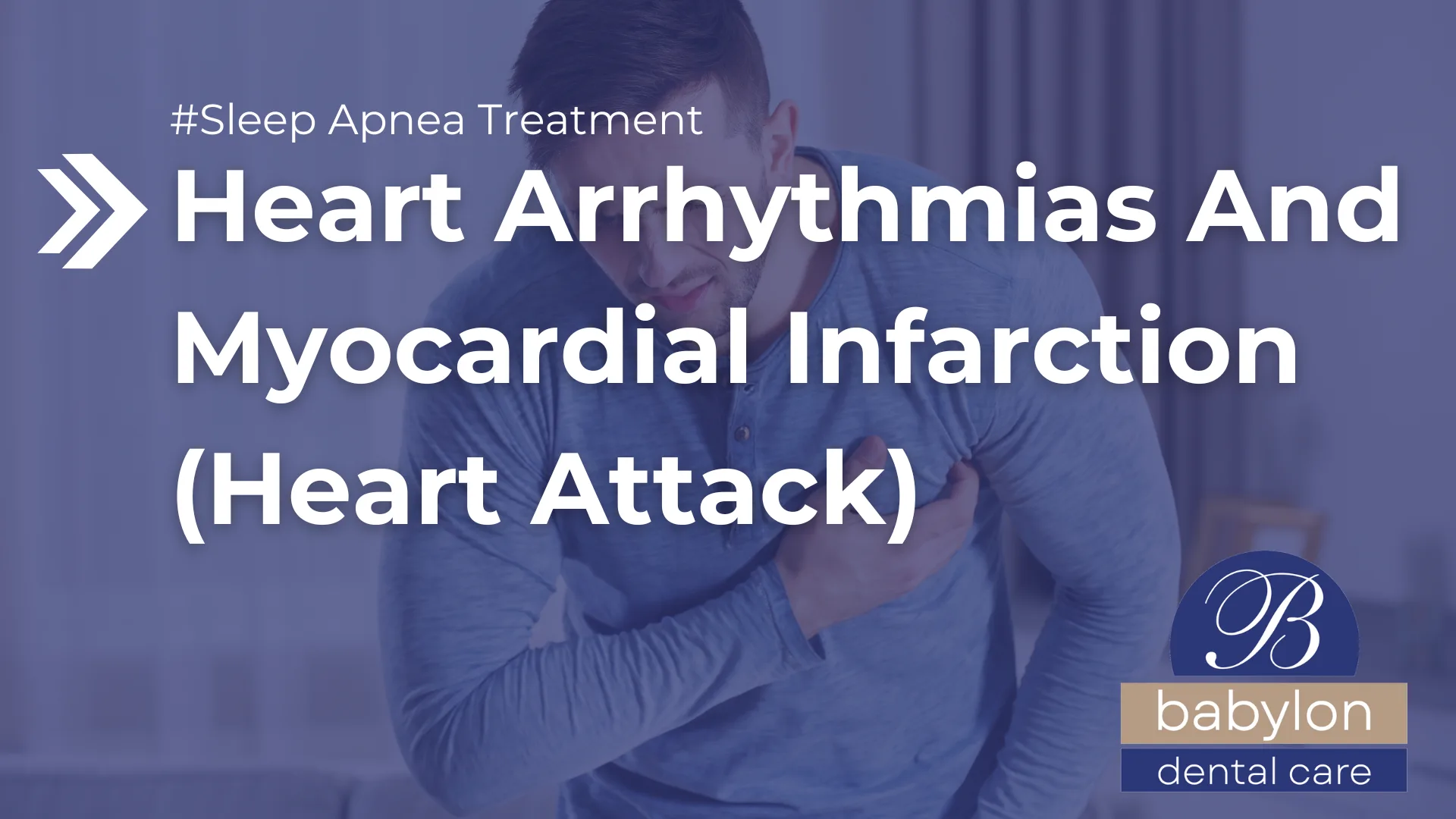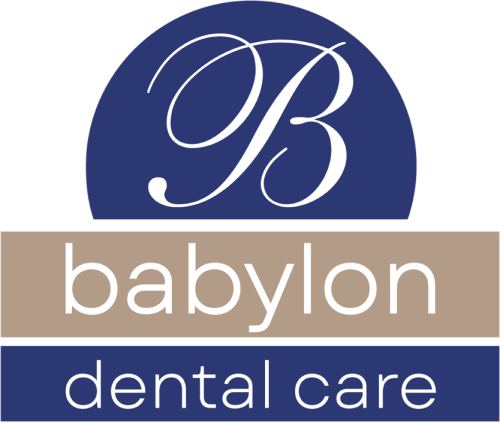
One of the scariest things about having untreated sleep apnea is the condition’s relationship to heart problems. There are proven correlations between having sleep apnea and having heart arrhythmias, or heart rhythm problems. There is also a proven connection between sleep apnea and the chances of having a myocardial infarction, or heart attack.
If you or your partner believe you have sleep apnea, don’t wait until something catastrophic occurs to find out. Contact Babylon Dental Care today at (631) 983-6665 for an appointment with a sleep apnea and snoring treatment expert to see if you have sleep apnea and to learn how we can help.
What Is Heart Arrhythmia?

According to the Mayo Clinic, heart arrhythmias occur when the electrical signals that coordinate our heartbeat aren’t working properly. If the faulty signal is causing the heart to beat too slow, it is called bradycardia. An accelerated heartbeat caused by arrhythmia is called tachycardia. The condition may also cause your heart to fluctuate between the two.
Heart arrhythmias may be harmless, although they can give one the feeling of a racing or fluttering heart. Some heart arrhythmias, however, may cause signs and symptoms that range from bothersome to life-threatening.
Can Sleep Apnea Cause Heart Arrhythmias?
Obstructive sleep apnea (OSA) is a sleep-related breathing disorder in which your usual breathing becomes disrupted and stops intermittently. Although brief, these pauses in regular breathing can affect the heart.
It is estimated that up to a quarter of those who use a pacemaker to regulate their heartbeat also have sleep apnea. This suggests a relationship between the two. It has also been found that those who already have heart disease have a higher incidence of sleep apnea than those who do not. A negative feedback loop occurs because sleep apnea can worsen the damage to the heart of those who already have heart disease.
People who successfully treat sleep apnea can also see a reduction in their heart arrhythmias. Again, it seems that sleep apnea is a likely cause of arrhythmia in some people.
What Triggers Arrhythmia During Sleep?
 There are several ways sleep apnea may cause heart arrhythmias during sleep.
There are several ways sleep apnea may cause heart arrhythmias during sleep.
- Creating Intrathoracic Pressure Changes
Have you ever tried to suck something through a straw that is blocked? That is the same thing that is happening to your breath during a sleep apnea episode. This strain creates extra pressure that affects your lungs and heart, which, in turn, may affect the way blood flows back to the heart. Each of these changes could lead to heart arrhythmia.
- Causing Myocardial Ischemia
Your oxygen level can drop if you stop breathing during a sleep apnea episode. This may lead to a lack of oxygen in your tissues, also known as hypoxia. If the heart demands more oxygen than is available, you may develop myocardial ischemia. This can lead to heart arrhythmia.
- Triggering Sympathetic and Parasympathetic Systems
When you stop breathing during a sleep apnea episode, your body’s warning systems are triggered so they can stimulate breathing again. One warning system is the parasympathetic system, which slows heart rate, and another is the sympathetic system, which speeds the heart up.
What Is a Myocardial Infarction (Heart Attack)?
Most people have a pretty good idea of what it means to have a heart attack. According to the Mayo Clinic, a myocardial infarction or heart attack occurs when the flow of blood to the heart is severely blocked or reduced. The blockage is usually due to fatty plaque buildup on the arterial walls of the heart. Atherosclerosis is the name for this process of plaque buildup.
Sometimes a clot is formed when a plaque ruptures and blocks blood flow to an area of the heart. Without enough blood, that part of the heart is damaged or destroyed.
To prevent death, fast treatment is needed for a heart attack. Always call 911 if you believe you are having a heart attack.
Can Sleep Apnea Cause a Myocardial Infarction?
The fact is that if you have severe sleep apnea, you are at a much higher risk of having a heart attack than someone who does not. According to the American Thoracic Society, if you have untreated severe obstructive sleep apnea (OSA), you are twice as likely to have a heart attack in the future than someone without OSA.
Although the exact reason why people with obstructive sleep apnea tend to develop heart disease is unknown, the correlation between the two is striking. One comforting fact is that people who treat their obstructive sleep apnea can help prevent or improve their heart problems. Not only that, but treating your sleep apnea can also reduce the severity of diabetes and many more health conditions.
The Importance of a Healthy Lifestyle
Along with treatment for your sleep apnea, healthy lifestyle choices can positively impact sleep apnea as well as heart disease. Some of these include:
- Get regular moderate exercise
- Avoid alcohol and caffeine a few hours before bed
- Have a consistent wake-up time and bedtime each day
- Eat a healthy diet that includes plenty of fruit, vegetables, whole grains, and healthy fats.
- Maintain positive sleep habits by creating a sleep environment that fosters a good night’s rest. Try to limit any unwanted sound or light in your bedroom. If it is not possible to sleep in a completely dark room, an eye mask can help.
Contact Babylon Dental Care for Treatment of Sleep Apnea
Now that we have established some of the dangers of having untreated obstructive sleep apnea, what is the next step? Unfortunately, a quick fix with surgery is not usually recommended and is considered a last resort. This is because of the potentially long recovery time after surgery, and also because the success rate of such surgeries is questionable.
CPAP (Continuous Positive Airway Pressure) machines are the most common form of treatment. Some users find them uncomfortable, however, and report difficulty falling or staying asleep while using them.
As a more comfortable alternative, Babylon Dental Care offers The Moses® appliance to its patients. This practical appliance allows wearers to talk and even drink while wearing it. If you are interested in The Moses device for the treatment of your sleep apnea, we encourage you to contact us today at (631) 983-6665.
